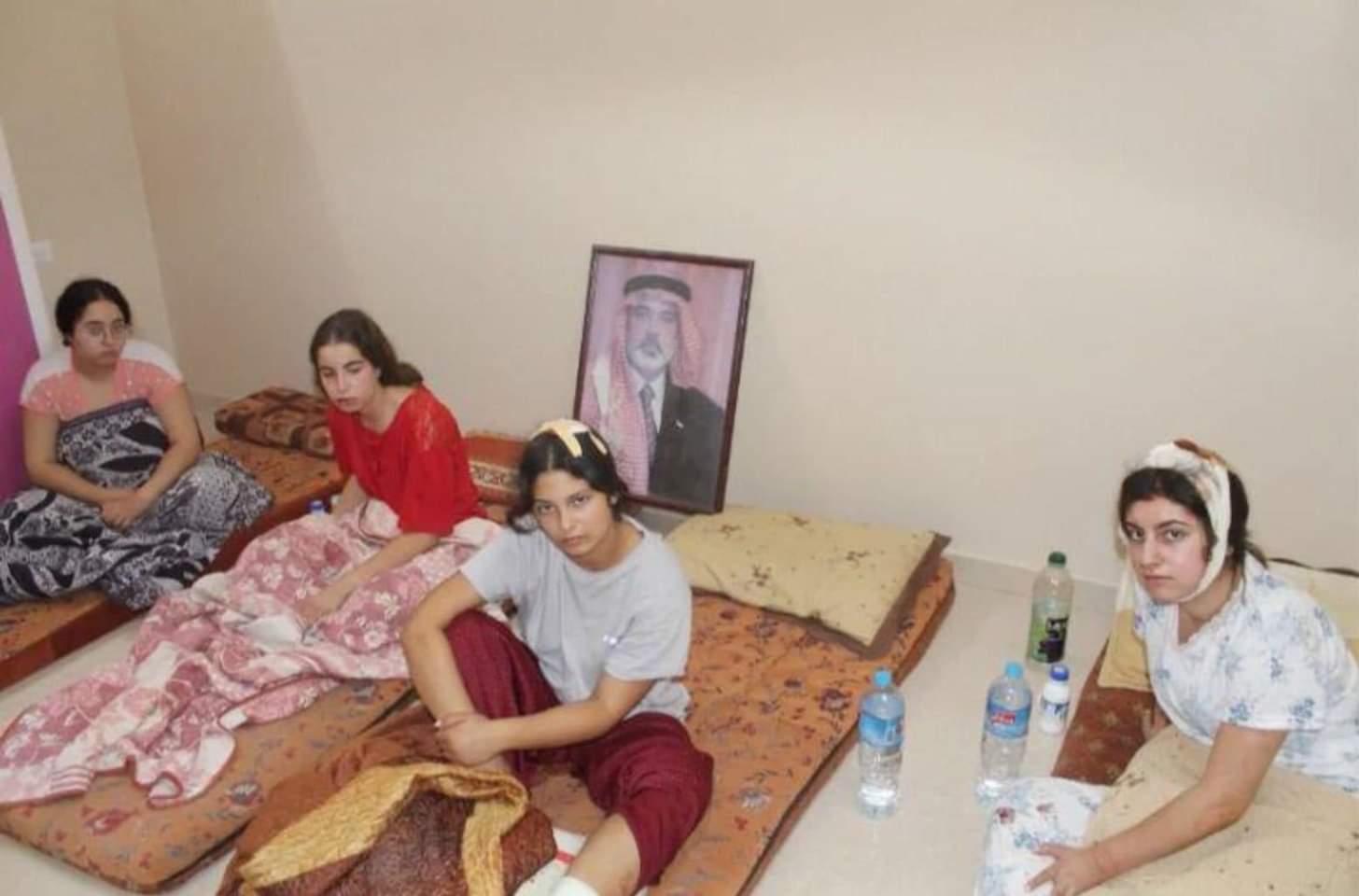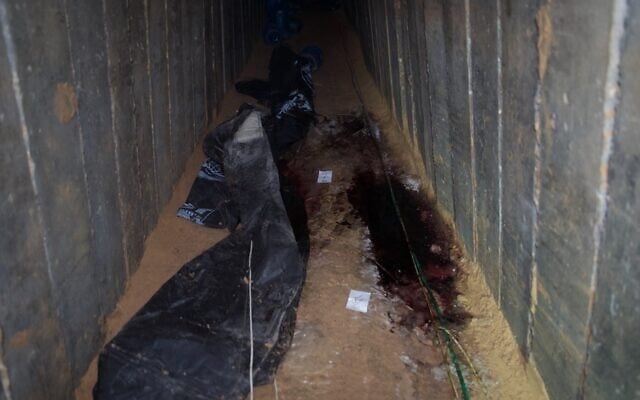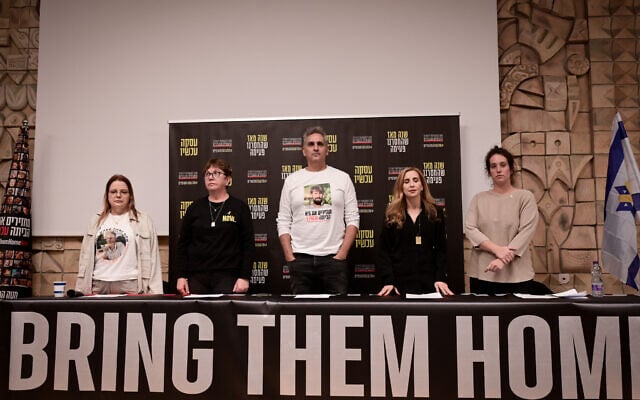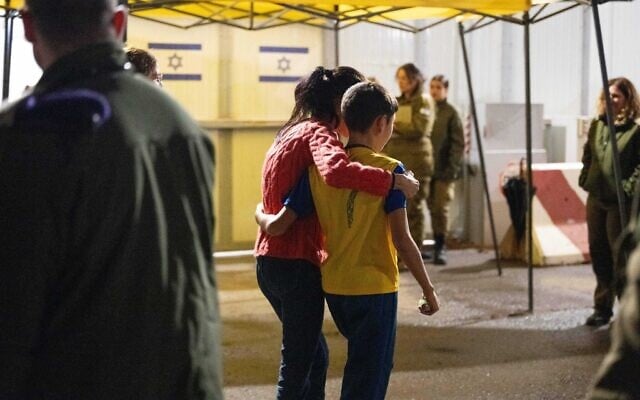



With preparations underway for the possible return of hostages — 33 are expected to be freed in the first phase of the deal currently being negotiated between Israel and Hamas, most of them alive — Dr. Noa Ziv of Schneider Children’s Medical Center compared the condition of the hostages now to that of the 105 civilians released during a week-long truce in late November 2023.
“We saw that the hostages then were in a difficult state, although they faced few medical issues,” Ziv told The Times of Israel. “That was after about 50 days of captivity. One can only speculate about the complex health and mental states the hostages will be in after 466 days in captivity.”
The hostages who might be released are among 251 kidnapped on October 7, 2023, when 3,000 Hamas terrorists stormed Israel and killed some 1,200 people while committing many acts of brutality and sexual violence.
Ziv, who conducted a groundbreaking study about the 19 children and seven women who were released in November, said the hostages exhibited the effects of psychological terror due to warfare strategies that included isolation, intimidation, lack of food and water, and emotional abuse.
Among other symptoms, the patients had significant weight loss, emotional trauma, and complications caused by poor hygiene and lack of proper medical care.
When Hamas released the 105 civilians, the hostages went to one of six Israeli hospitals: Soroka Medical Center, Sheba Medical Center, Wolfson Medical Center, Ichilov Hospital, Shamir Medical Center, and Schneider Children’s Medical Center.
The Health Ministry said that, at this time, it is unable to provide information about the future care of the hostages.
“The most important thing will be to provide the released hostages with privacy and good medical care in the bosom of their family,” Dr. Mark Clarfield, emeritus professor of geriatrics at Ben Gurion University, told The Times of Israel. Together with Dr. Hagai Levine, chair of the Israeli Association of Public Health, Clarfield wrote a study about three of the elderly hostages held in Gaza .
He said that medical professionals will then look at specific health issues that individuals have.
“Not everybody has hypertension, not everybody has diabetes, but for those people with specific conditions, they will need timely and expert advice about that,” Clarfield said.
“There are probably issues of infection and nutrition, you know, depending on where they have been kept, whether they were well-fed or not,” he said.
Some of the hostages may have been kept isolated. They may not know any of the news, he said.
“There are psychological, physical, familial and social issues that have to be dealt with, but patiently and slowly, out of the glare of publicity,” Clarfield said.
The general principle, he said, is “timely, patient and private care, giving the hostages time to readjust, because when people are released from captivity as they were with Hamas, it’s complicated and particularly difficult.”
Testimonies of hostages who were released in the November 2023 deal and those who were rescued by Israeli forces revealed that individuals were burned and beaten, starved and humiliated.
According to a Health Ministry report given to the United Nations, the abuse impacted their mental and physical health, even long after they were freed.
The report said hostages were kept for days in darkness, with their hands and feet bound, and received little food or water. They were beaten all over their bodies. Some had hair pulled out and some were burned and branded with metal heated over an open flame. Others, including children, were subjected to sexual assault.
Hostages said there was a lack of showers and that they were forced to wait hours or even days before being permitted to use a toilet. Some were forced to soil themselves.
Ziv said that blood tests showed that about half of the captives had unusual infections; some suffered from tick-borne fever and others from Q fever, transmitted by inhaling dust or contact with sick animals. Some suffered from multiple insect bites and intense skin irritation.
All the captives suffered from hunger, Ziv found; 15 of them showed a significant weight loss of up to 15 percent of their body mass.
According to the hostages’ reports, their diet consisted mostly of rice and white bread, without vegetables, protein, or fat.
Adina Moshe, who was kidnapped from Kibbutz Nir Oz and was released in the November deal, told the Hebrew-language news site Walla that a long rehabilitation awaits the returning hostages.
“Everyone needs to understand that they are not going back to what they used to be,” Moshe said.



